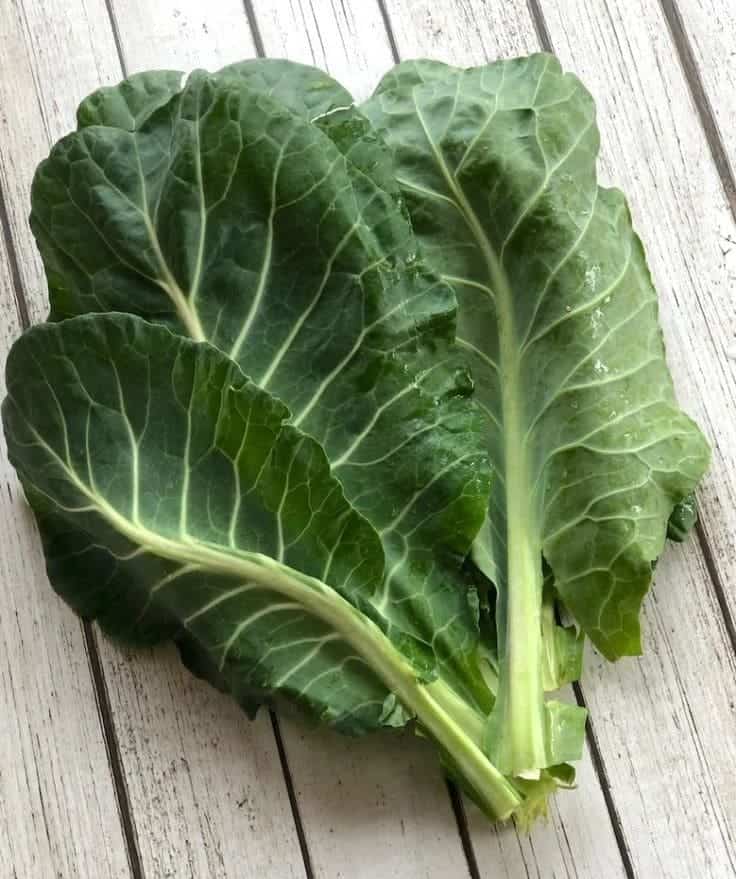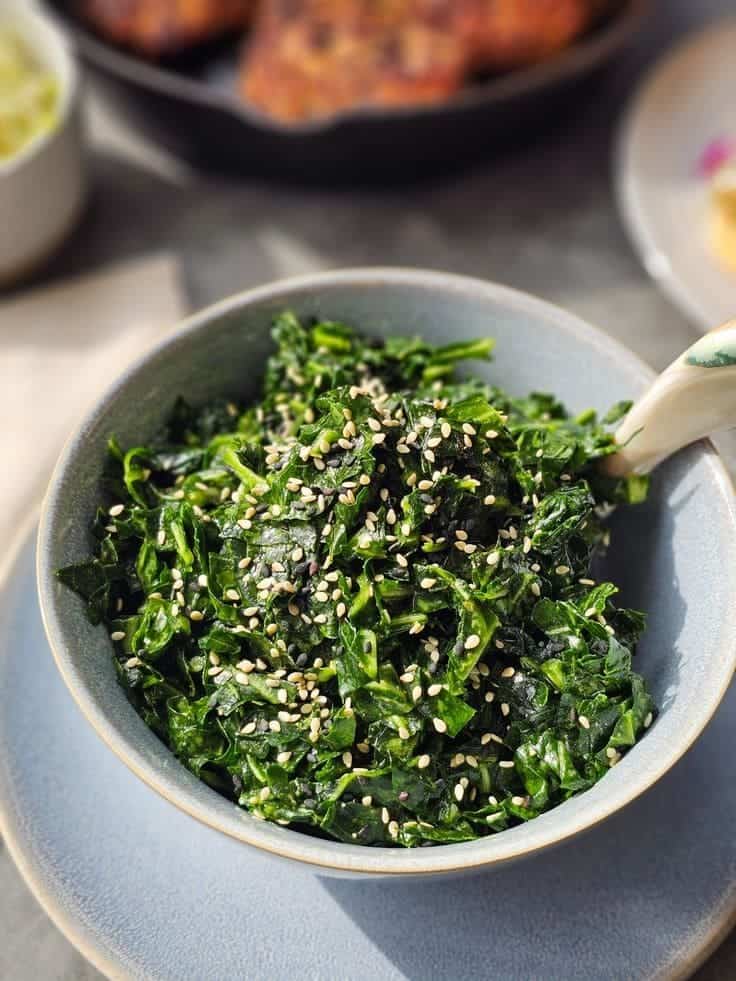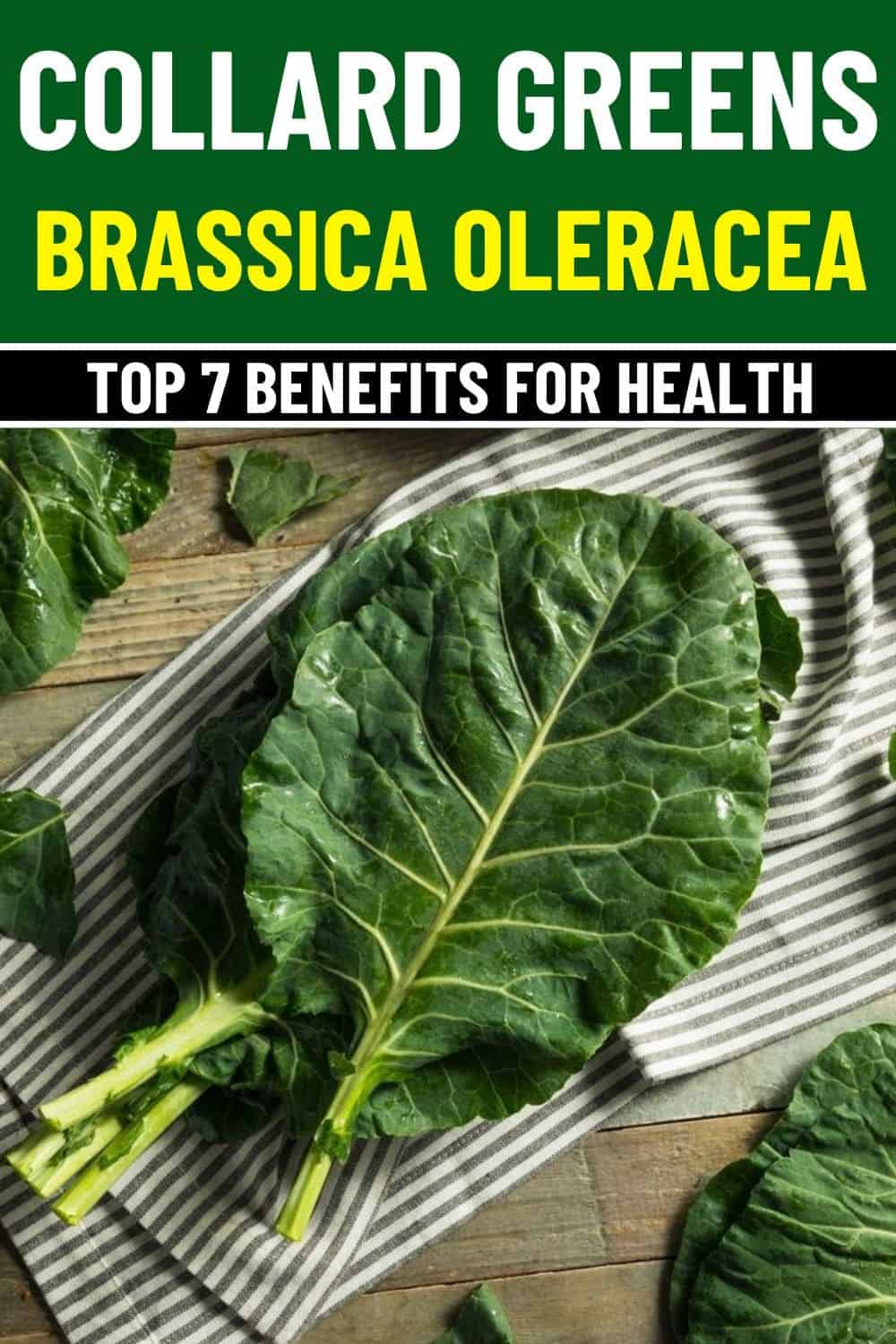Collard greens (Brassica oleracea var. acephala) are a leafy green vegetable that originated in the Mediterranean.
Packed with essential nutrients like vitamins A, C, and K, as well as calcium and fiber, they are a powerful addition to any healthy diet.
These greens not only provide rich nutrition but also offer numerous health benefits.
#1. Boosts Immune System
Loaded with vitamin C (35 mg per 100 grams), collard greens help fortify your immune system and defend against common illnesses.
The vitamin plays a crucial role in wound healing and collagen production, maintaining healthy skin.
Furthermore, antioxidants found in collard greens work to reduce inflammation, supporting overall immune function and resilience.

#2. Promotes Healthy Digestion
With 4 grams of fiber per 100 grams, collard greens are excellent for digestion. They help regulate bowel movements, prevent constipation, and maintain a healthy gut microbiome.
In addition, fiber supports the growth of beneficial gut bacteria, contributing to better digestion and nutrient absorption.

#3. Supports Heart Health
Collard greens are rich in potassium (213 mg per 100 grams), which helps balance sodium levels in the body and supports healthy blood pressure.
The high fiber content in these greens also lowers cholesterol levels, reducing the risk of heart disease.
Moreover, their antioxidant properties protect blood vessels, promoting better circulation and overall heart health.

#4. Strengthens Bones
The vitamin K content in collard greens is essential for bone health, as it aids in calcium regulation and improves bone density.
Along with calcium and magnesium, these nutrients work together to reduce the risk of osteoporosis and bone fractures.
So, including collard greens in your diet is an easy way to support strong, healthy bones as you age.

#5. Aids in Weight Management
Collard greens are low in calories, containing just 32 calories per 100 grams, while being high in fiber. This combination helps you feel full longer, making them an ideal food for weight management.
You can enjoy them as a nutritious snack or add them to meals to curb hunger without consuming extra calories.

#6. Promotes Skin Health
Rich in vitamin A, collard greens help keep your skin healthy by supporting cell growth and repair. Vitamin C also boosts collagen production, which contributes to skin firmness and elasticity.
By including collard greens in your diet, you can combat signs of aging and maintain youthful, glowing skin.

#7. Detoxifies the Body
Collard greens are high in glucosinolates, natural compounds that stimulate detoxification processes in the liver. These compounds help cleanse your body by promoting the elimination of toxins.
Moreover, their high fiber content aids in the removal of waste through the digestive system, supporting your body’s natural detoxification efforts.
How to Use Collard Greens
- Sautéed: Quickly sauté collard greens with garlic and olive oil for a simple and healthy side dish.
- Soups and stews: Add them to soups and stews for extra nutrition and flavor.
- Salads: Use young, tender collard greens as the base for a refreshing salad.
- Smoothies: Blend collard greens with fruits to create a nutrient-packed green smoothie.
- Wraps: Use large collard leaves instead of tortillas for a healthy wrap alternative.

Cautions and Precautions
While collard greens are packed with nutrients, they also contain oxalates, which can interfere with calcium absorption and contribute to kidney stones in sensitive individuals.
To reduce the oxalate content, cooking collard greens is recommended.
Additionally, if you’re taking blood-thinning medications, consult your doctor before eating collard greens regularly, as their high vitamin K content may affect blood clotting.
Disclaimer
This article is for informational purposes only and not a substitute for professional medical advice.
Always consult a healthcare provider before making dietary changes or using collard greens for health purposes.







